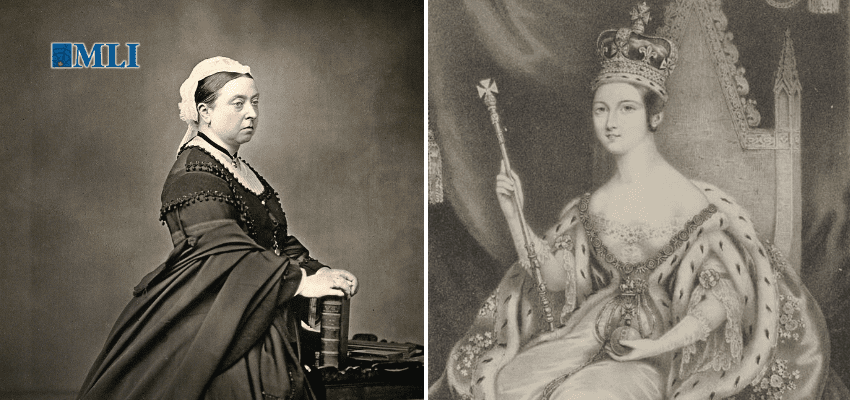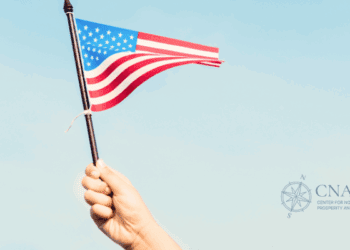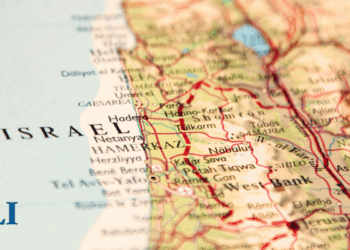By Geoff Russ, May 19, 2025
Victoria Day should be a day of rest and time spent among family and friends, as befitting a public holiday. It should also be treated as a commemoration with the cultural importance of Canada Day, for our country is a result of the Victorian era.
Those transformative 64 years of Queen Victoria’s reign are fittingly bookended by two vital events that showcase our growth from colony to sovereign state.
Victoria’s time on the throne began in 1837, the same year the Rebellions in colonial Lower and Upper Canada got underway. Her death in 1901 coincided with the Boer War, Canada’s first overseas adventure as a unified, confident country for the 20th century.
Hissing at Victoria Day as a vestigial relic of colonialism—hardly a simple part of our past—fails to recognize that Canadian history spans farther back than either the 20th century, or Confederation in 1867. The development and maturation of Canada between 1837 and 1901 had great consequences for our identity, borders, and political traditions.
When Mark Carney lauded our “proud British heritage” in his first address as prime minister, it was not praise for a foreign country. His words, even if unintentional, spoke of Canada’s place in a cultural civilization that spans the world.
That civilization is often referred to as Anglo-America or the Anglosphere. No matter the name, it was created during the Victorian era, and that is worth honouring as a time when our democracy truly began to flourish.
In 1837, British subjects in the Canadian colonies were frustrated by a lack of democratic reform. They bristled at being lorded over by appointed legislative councils whose power superseded the elected colonial assemblies.
Small minorities of English and French speakers took up arms in doomed revolts in both Upper and Lower Canada, which were swiftly crushed by local militias and the British army. However, the aftermath produced a generation of democratic reformers who led a movement that resulted in elected, responsible government in the pre-Confederation era.
These reformers’ aims, as exemplified by great men like Robert Baldwin and Joseph Howe, were not to overthrow the system, but to enjoy the same political rights as their counterparts in Britain.
It is fortunate that Canada’s political evolution into a truly democratic society was marked by peaceful, gradual means. Bloodshed, chaos, and horror have all too often blotted the histories of revolutionary republics.
30 years after the Rebellions came Confederation in 1867, which saw the Dominion of Canada born as a unified whole out of the formerly disparate colonies. It soon stretched to Pacific and Arctic shores, forming nearly our entire modern borders.
Our first prime minister, Sir John A. Macdonald, described Canada as “one people and one government.” He pushed forward to create a strong nation: the massive country would be secured by his government’s commitment to railways and national development.
When Canada is at its best, it is a country that can build great projects like its first country-spanning railways, an achievement that was in part driven by the optimism and determination to build out a distinct civilization.
Through its protectionist National Policy, Macdonald’s government enabled Canada to strengthen itself into a formidable redoubt that could stand on its feet in North America. It is due to the remarkable efforts of Macdonald and his ministers that Canada was not absorbed by the United States in its drive for Manifest Destiny.
The other great figure of Victorian Canada was undoubtedly Sir Wilfrid Laurier, who truly established the ideals of classical liberalism in our political culture. Influenced by British political giants like William Gladstone, Laurier championed economic freedom, individual rights, and the rule of law.
Under Laurier, Canada underwent a great transformation from a largely rural country into an urbanized and industrial nation. While critics can point to mistakes and wrongdoing by both Macdonald and Laurier, their uniquely Victorian beliefs created a great balance in Canada’s political culture that has endured to 2025.
Debates about individual rights, Canada’s economic sovereignty, and national development are still being had today in the House of Commons.
The misdeeds of Laurier and Macdonald cannot be erased, such as Laurier’s treatments of ethnic minorities or Macdonald’s residential school initiatives. Both policies are stains on our honour as a country. They are shameful chapters, but do not define the Canadian canon.
At the close of the Victorian era, Canada showcased its transformation from a ribbon of colonies bickering over democratic political rights into a mature country that went overseas to protect those freedoms. In 1899, the British Empire went to war with the Boer republics in South Africa, and 7,000 Canadians eagerly enlisted to fight alongside the mother country.
One of the main reasons for the enthusiasm of these volunteers was the mistreatment of Britons working in the Boer republics, who were treated as second-class subjects.
Certainly, there were ulterior imperial motives for the war—namely control of the gold deposits in South Africa. Yet there is no doubting the sincerity with which Canadians chose to fight in the name of rights and freedoms denied to fellow British subjects by a foreign power.
It takes a great deal of passion to choose to put one’s life in danger in a war. The Canadian contingent deployed to South Africa was assembled and shipped across the Atlantic in a matter of weeks, displaying the heartfelt convictions of these volunteer soldiers.
Once they arrived in Africa, the Canadians distinguished themselves in the field, especially at the Battle of Paardeberg in 1900—a year before Queen Victoria’s death at age 81. It resulted in the surrender of a large enemy force in one of the war’s pivotal turning points
Before Vimy Ridge entered the national consciousness as our martial history’s defining battle, there was Paardeberg.
Even Laurier, himself a skeptic of Canadian involvement in the Boer War, spoke these words after news of the victory arrived: “Is there a man whose bosom did not swell with pride…? That day…the fact had been revealed to the world that a new power had arisen in the West.” Victorian Canada is worth upholding.
France as we know it came about during its revolutionary and Napoleonic eras in the late 18th century, and this is celebrated every year on Bastille Day on July 14. On the 200th anniversary of Napoleon’s death in 2021, French President Emmanuel Macron stated that the emperor “is part of us” and laid a wreath at his tomb in Paris.
The Italians take it farther back. They uphold their Ancient Roman inheritance in their national anthem, paying homage to the general Scipio Africanus in the first stanza. That heritage is reflected in the many surviving monuments of Ancient Rome like the Colosseum or the great aqueducts.
Similarly, some of the most beautiful buildings in Ottawa, Montreal, and Victoria harken back to the Victorian era when Canada began its existence as a country, and its citizens were riveted by values of strength, freedom, and prosperity. Understanding our country as a special place within a unique, greater civilization is paramount in our times.
The experiment of the post-Cold War era that sought to create a homogenizing, united world has failed. We are in an era where clear blocs have formed on the world stage, whether it be the totalitarians in Russia and China or their democratic rivals whose pre-eminence they seek to overthrow.
It is important that Canadians recognize how our existence in the Anglosphere makes us part of a distinct civilization, and one that people around the world strive to join. It is not by accident that Canada, Australia, New Zealand, the United States and Great Britain are among the most highly sought after destinations for immigration due to their political and economic inheritances.
Many newcomers understand what it means to come from a culture that places great value on its history, languages, and traditions. Much of the Anglosphere has become indolent and beset by lies that assert they have no culture or identity worth celebrating, leaving nothing for immigrants to integrate into.
National holidays are a time for fun, but people should recognize why we choose certain days for these celebrations. Canada Day is an occasion of jubilant nation building. The country needs more of those days to remind people of our identity, and provide an opportunity to assert it.
Canada has everything it needs to have a distinct sense of self. But realizing that unique identity requires an awareness that our present is guided by truths from the past. The Victorian era made Canada, and its legacies continue to influence us to this day.
Yet Victoria Day remains a shunned holiday.
Last year, federal politicians scarcely took note of it, even from the Conservatives who usually do not shy away from defending Canadian history and traditions.
Let that neglect die, for Victoria Day is an occasion to remember and celebrate our civilization, one that is at risk in this uncertain world.
It is a reminder that our country, so hobbled today by doubt and pessimism, once believed itself to be destined for national greatness. We have every reason to try our hardest to fulfill that destiny in our lifetimes.
Geoff Russ is a writer, policy analyst, and a contributor for the Macdonald-Laurier Institute.






